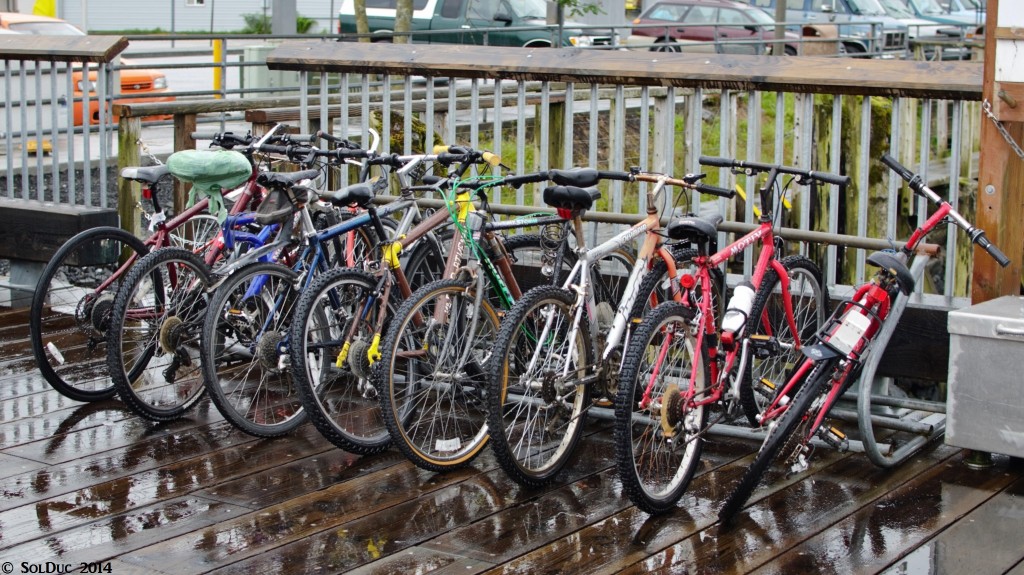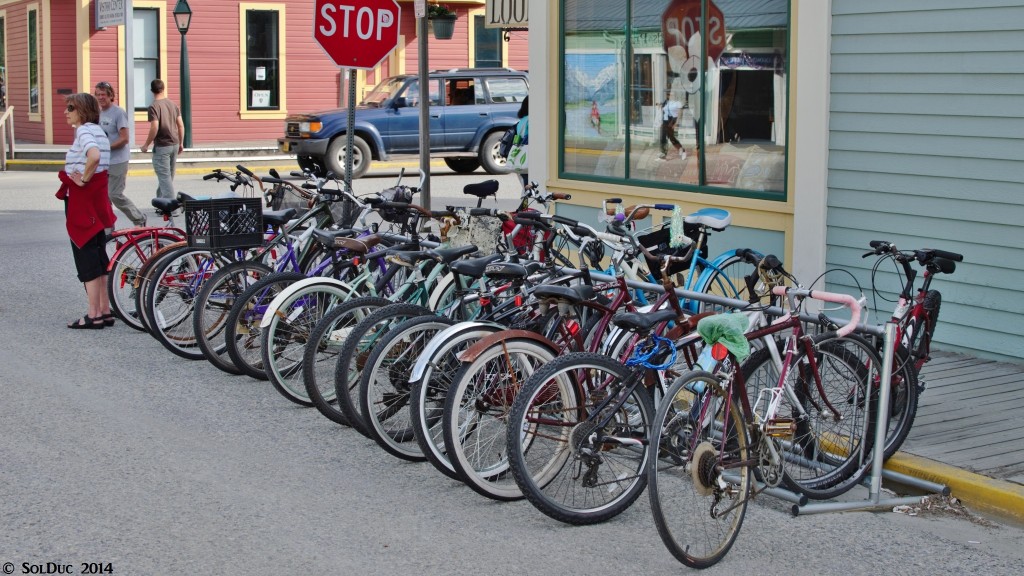
Back in June, I took a two-week trip exploring the Alaskan Panhandle, visiting cities along the inside passage like Ketchikan, Petersburg, Juneau, and even the gold rush era Skagway. Having the stereotypical Alaskan in mind, I thought that everyone would be riding big Pickup Trucks or at least some kind of four wheeler. This was somewhat the case in the two major cities, Juneau (pop. 32,000) and Ketchikan (pop. 13,500), but in smaller cities, a big transportation share was actually made of single wheeler vehicles, which are also known as bikes to the majority of us. I was surprised to see so many bikes out on the streets, with people of all ages and abilities riding around. However, it was not long before I came up with a theory to explain this.
The burden of a car
When people in the lower 48 think of how owning a car might be a burden, they think about finding parking and paying for it, or having to deal with traffic. None of these concerns exist in Alaska, streets are free of gridlock and parking is free and easy to find. The Alaskan might instead think of transportation of the car! Since most of Southeast Alaskan cities are only accessible by sea or air, cars must be shipped by barge from Seattle to the major cities, where they are then put on smaller barges or ferries to go out to smaller cities. This complicates just the act of getting a car and raises the price of the car by a significant amount.
So say you just got a new car. Great. Now how are you going to make it run? Well, you need to bring in fuel from Seattle by, once again, a barge! Yes, Alaska does have petroleum, but it is not located around the inside passage, rather inland and north, far north. Because of the added transportation expense, gas is much more expensive in the panhandle. The best you can find is 25% more expensive than in Seattle (in June that was around $5 a gallon), if not more.
But also think of car maintenance. Shipping a simple component that you would need to replace can take days, if not weeks. And like cars and gas, it’s more expensive.
All of this combined make the car a non-viable option for short trips, from an economic point of view.
Human-scale cities
The notion of suburbs and strip malls do not exist in small-town Alaska. Cities are built on the side of the water and do not sprawl. Smaller cities make it much more logical to get on a bike, as getting to the other side of town can be as little as a mile, where cars do not have a significant time advantage. Streets don’t have five lanes of fast-moving traffic and getting to businesses don’t mean that you have to cross a monstrous parking lot before getting somewhere.
Also, there’s no freeways to shrink down distances for a car. Everyone takes the same streets, which go through the same areas and no mode of transportation has a special shortcut. Bikes are slow compared to cars on a freeway, but it’s not rare to see bikes travel as fast as cars on arterials, especially ones with traffic lights or stop signs.

Scarce Public Transit
Most of the cities in the Inside Passage are not big enough to justify full-scale transit systems. If transit is present in a city, it generally is a single line (as much as 3 for Juneau and Ketchikan) and runs infrequently. For many people that would otherwise use transit, biking becomes more attractive and the best way to get around. Or even better, people bike to their closest bus stop and put their bike on the bus to get to their destination. Alaskan transit has mastered the importance of having bike racks similar to a lot of cities in the lower 48 have.
Fun and Exercise
Alaska in the summer has extremely long days and in the winter has very short ones. In those winter months biking is one of the only ways for Alaskans to go outdoor and exercise, and since they can do it on their commute so they don’t lose precious daylight. In the summer, with people working long hours (80+ hours for some, since winter is slow), biking is a good way to relax. Biking is a fun part of people’s day and something they look forward to.
Biking is addictive: do it once and you will find yourself doing it more and more often. And that’s what has happened to SE Alaska, to their great advantage.
Guy is a high school student in Bellevue with a strong desire to become an urban planner. Before moving to Bellevue, he grew up in the Paris metropolitan area where he fell in love with and learned from some of the best rail systems in Europe. Translating his experiences from abroad to Seattle, Guy is now passionate about improving this region's public transit (especially marine-based transportation) and cycling infrastructure. Aside from the technical side of things, Guy also enjoys photography and music.

